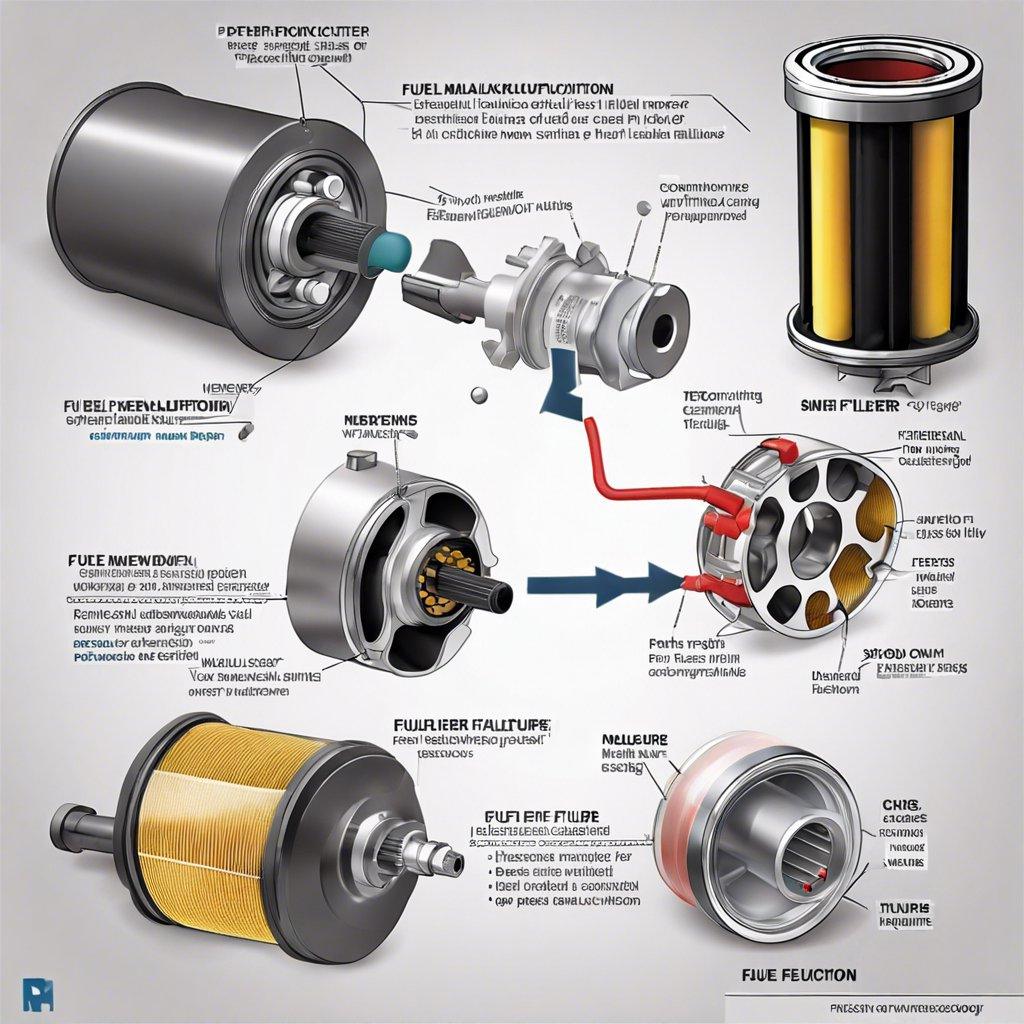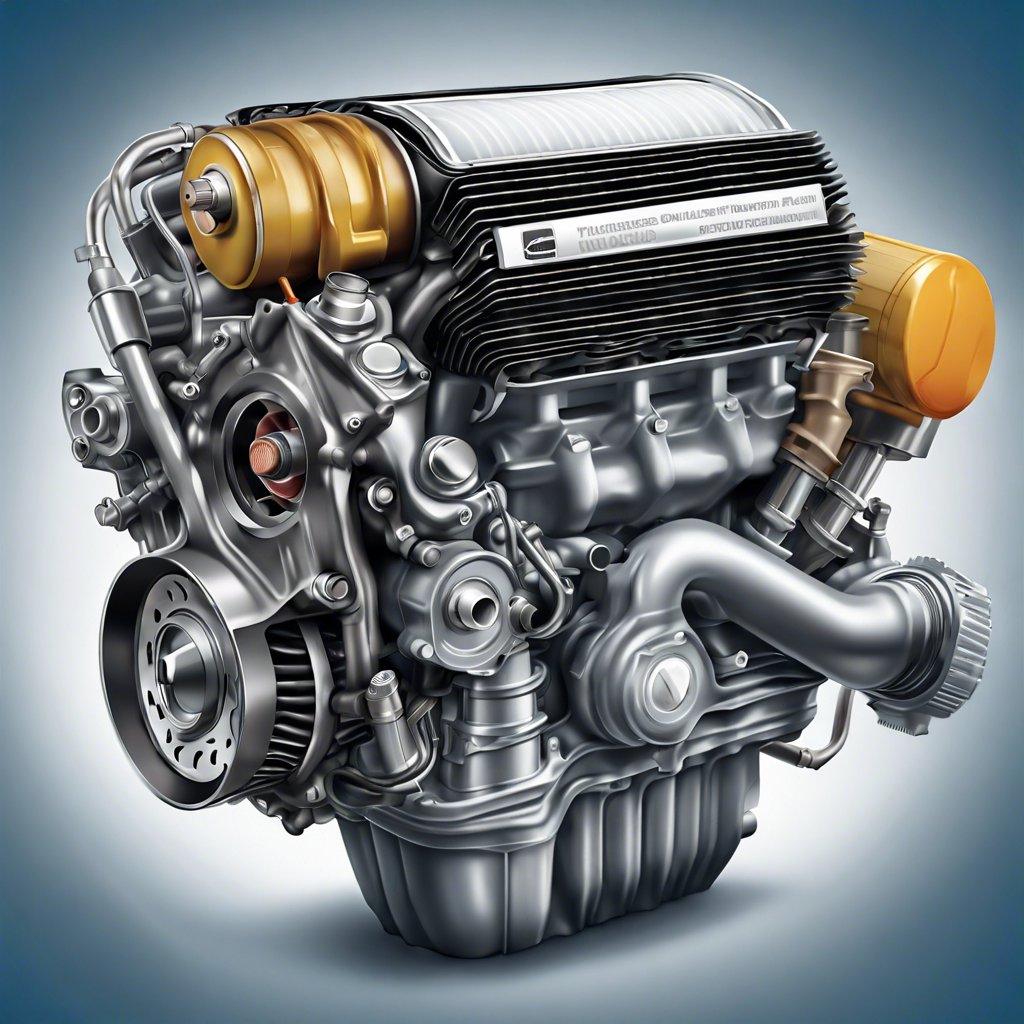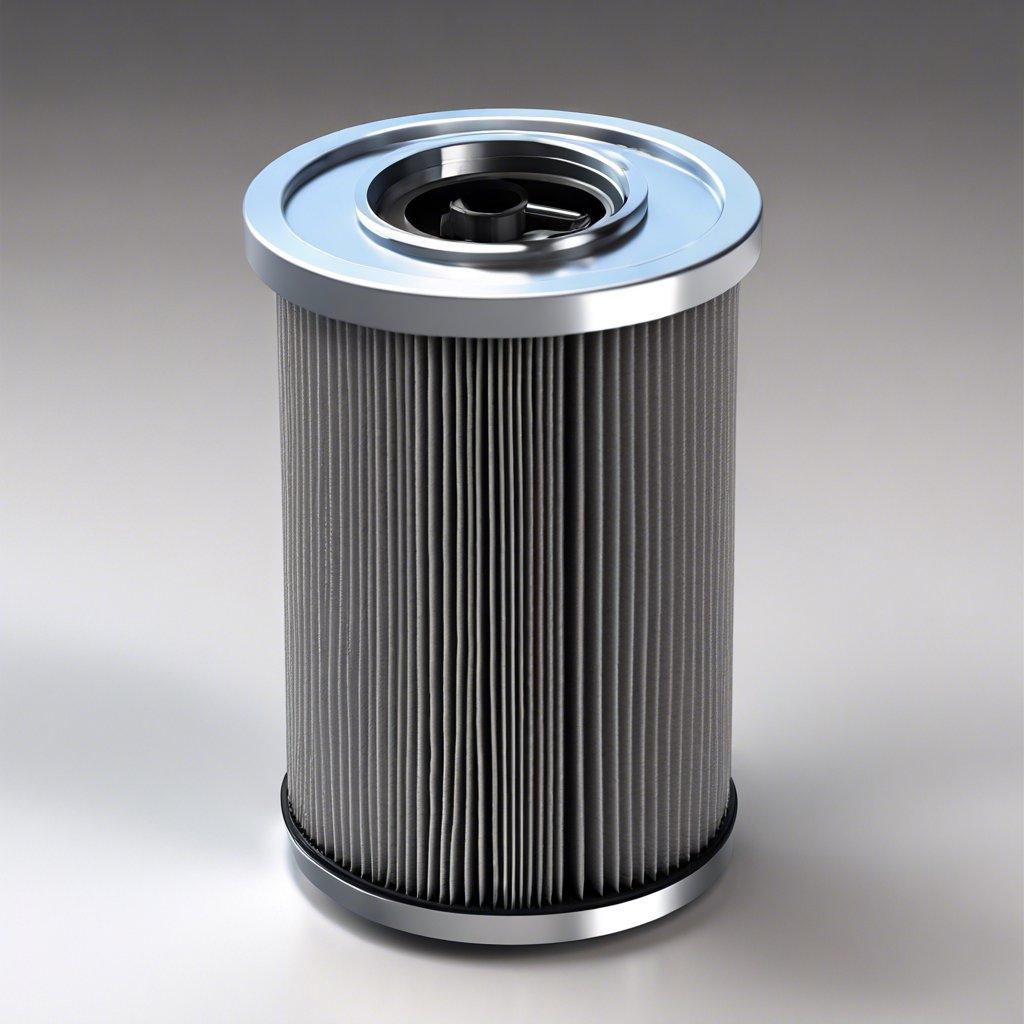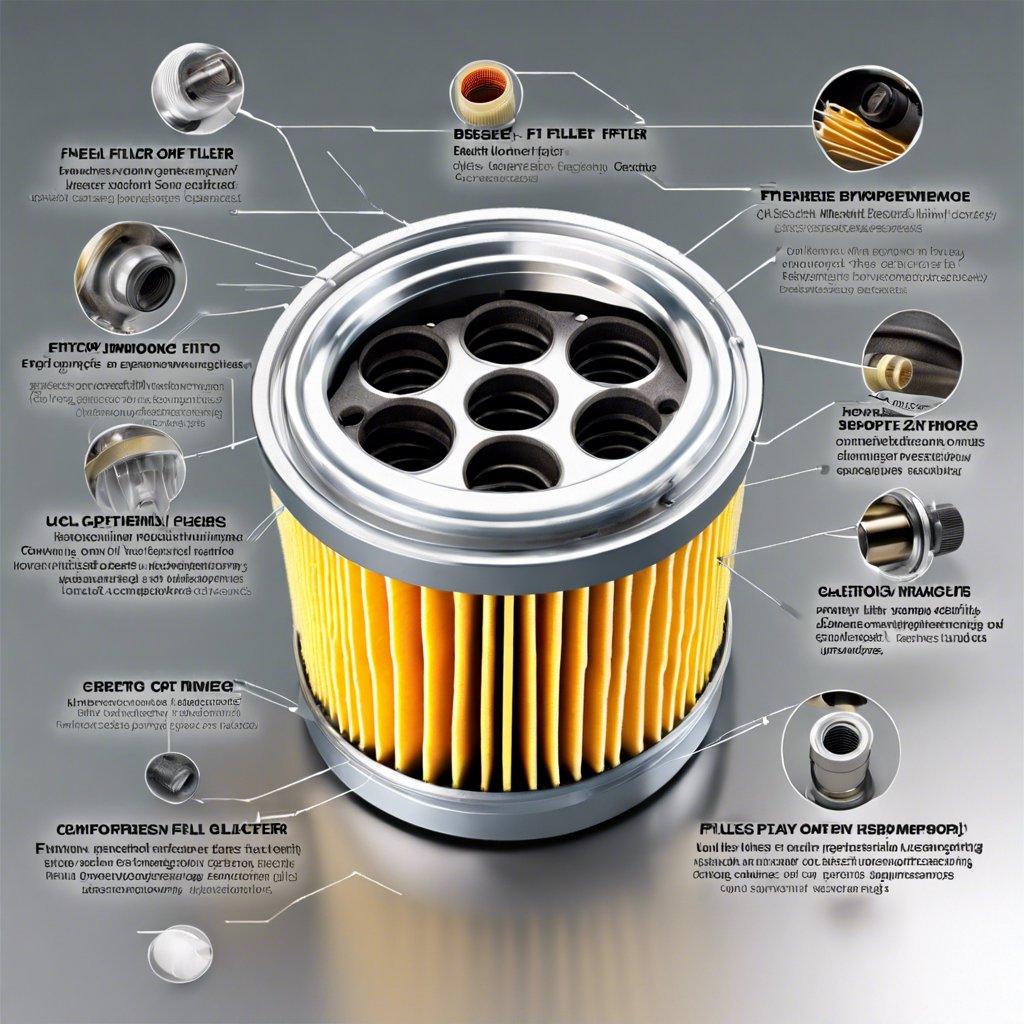Detecting a Bad Fuel Filter: Early Warning Signs
Recognizing the Harbingers: Uncovering Fuel Filter Malfunctions

In the realm of engineering and technology, the fuel filter plays a crucial role in ensuring the smooth and efficient operation of any vehicle or machinery. However, when this unsung hero begins to falter, it can lead to a cascade of issues that can significantly impact performance and reliability. As engineering and technology professionals, it is essential to be equipped with the knowledge to recognize the early warning signs of a failing fuel filter, enabling proactive maintenance and preventing costly downtime.
Decreased Fuel Efficiency
One of the primary indicators of a malfunctioning fuel filter is a noticeable decrease in fuel efficiency. As the filter becomes clogged with contaminants, it restricts the flow of fuel, forcing the engine to work harder to maintain the same level of power. This increased strain on the engine can result in a measurable drop in fuel economy, signaling the need for a thorough inspection and potential replacement of the fuel filter.
Reduced Engine Performance
Another telltale sign of a problematic fuel filter is a decline in engine performance. As the filter becomes obstructed, the engine may struggle to maintain its usual power output, leading to hesitation, loss of acceleration, and even stalling. This can be particularly evident during high-demand situations, such as rapid acceleration or climbing steep inclines, where the engine’s need for fuel is amplified.
Difficulty Starting the Engine
A clogged fuel filter can also make it increasingly challenging to start the engine. The restricted fuel flow can cause the engine to struggle to draw the necessary fuel, leading to difficulties in the ignition process. This issue can be exacerbated in cold weather conditions, where the engine’s demand for fuel is even greater.
Unusual Engine Noises
In some cases, a failing fuel filter can also be accompanied by unusual engine noises. As the filter becomes more obstructed, the fuel pump may have to work harder to overcome the resistance, resulting in a distinct whining or buzzing sound. These auditory cues can serve as an early warning sign, prompting immediate inspection and maintenance.
Frequent Fuel Filter Replacements
If you find yourself needing to replace the fuel filter more frequently than recommended by the manufacturer, it may be a sign of an underlying issue. Excessive contaminants in the fuel system or a problem with the fuel delivery components could be causing the filter to become clogged at a faster rate than normal.
By recognizing the early warning signs of a failing fuel filter, engineering and technology professionals can take proactive steps to address the issue before it leads to more significant problems. Regular inspection, maintenance, and timely replacement of the fuel filter can help ensure the optimal performance and reliability of any vehicle or machinery, ultimately contributing to the overall efficiency and productivity of the operation.
Keywords: fuel filter, engine performance, fuel efficiency, engine noises, fuel filter replacement
Fuel Filter Failure Forensics: Identifying the Early Telltale Signs
Understanding Fuel Filter Failure
The fuel filter is a critical component in any vehicle’s fuel system, responsible for removing impurities and contaminants from the fuel before it reaches the engine. Failure of the fuel filter can lead to a range of issues, from reduced engine performance to complete engine failure. Identifying the early warning signs of fuel filter failure is essential for proactive maintenance and preventing costly repairs.
Recognizing the Early Telltale Signs
Decreased Fuel Efficiency
One of the first signs of a failing fuel filter is a noticeable decrease in fuel efficiency. As the filter becomes clogged, the engine has to work harder to draw fuel, resulting in reduced miles per gallon (MPG).
Reduced Engine Power
A clogged fuel filter can restrict the flow of fuel to the engine, leading to a loss of power and acceleration. This can be especially noticeable during high-load conditions, such as accelerating uphill or towing a heavy load.
Rough Idling and Stalling
As the fuel filter becomes increasingly blocked, the engine may experience rough idling, stalling, or even difficulty starting. This is due to the restricted fuel flow, which can cause the engine to run lean or misfire.
Illuminated Check Engine Light
Many modern vehicles are equipped with onboard diagnostics that can detect issues with the fuel system, including a clogged fuel filter. If the check engine light illuminates, it’s crucial to have the vehicle inspected by a qualified technician.
Fuel Filter Inspection and Replacement
Regularly inspecting and replacing the fuel filter, as recommended by the vehicle manufacturer, is essential for maintaining optimal engine performance and preventing costly repairs. The frequency of replacement may vary depending on driving conditions, fuel quality, and the vehicle’s age and mileage.
| Fuel Filter Inspection and Replacement Frequency | Typical Recommendation |
|---|---|
| Normal Driving Conditions | Every 30,000 to 50,000 miles |
| Severe Driving Conditions (Towing, Dusty Environments) | Every 15,000 to 30,000 miles |
It’s important to note that the fuel filter replacement interval may vary depending on the manufacturer’s recommendations, so it’s always best to refer to the owner’s manual or consult a professional technician.
Recognizing the early warning signs of fuel filter failure is crucial for maintaining the health and performance of your vehicle’s engine. By being proactive with fuel filter inspections and replacements, you can avoid costly repairs and ensure your vehicle continues to operate at its best. Stay vigilant for signs of decreased fuel efficiency, reduced engine power, rough idling, and illuminated check engine lights, and address any issues promptly to keep your vehicle running smoothly.
Proactive Vigilance: Monitoring the Fuel Filter for Impending Issues
As engineering and technology employees, it is crucial to maintain a proactive approach to vehicle maintenance, particularly when it comes to the fuel filter. This unassuming component plays a vital role in ensuring the efficient and reliable performance of your vehicle’s engine, and neglecting its condition can lead to costly and potentially dangerous consequences.
Recognizing the Early Warning Signs
The fuel filter is responsible for removing impurities and contaminants from the fuel before it reaches the engine. Over time, this filter can become clogged or damaged, which can have a significant impact on your vehicle’s performance. By being vigilant and monitoring the fuel filter, you can detect potential issues early and take the necessary steps to address them before they escalate.
- Decreased Fuel Efficiency: If you notice a sudden drop in your vehicle’s fuel efficiency, it could be an indication that the fuel filter is becoming clogged, restricting the flow of fuel to the engine.
- Difficulty Starting the Engine: A clogged fuel filter can make it challenging to start the engine, as the fuel is unable to reach the combustion chamber effectively.
- Rough Idling or Stalling: A malfunctioning fuel filter can cause the engine to idle roughly or stall unexpectedly, as the fuel supply is disrupted.
These are just a few of the early warning signs that may indicate a problem with the fuel filter. It is important to address these issues promptly to avoid more severe complications, such as engine damage or complete failure.
Proactive Maintenance and Replacement
To maintain the optimal performance and longevity of your vehicle, it is recommended to have the fuel filter inspected and replaced at the intervals specified by the manufacturer. This proactive approach can help prevent unexpected breakdowns and ensure the smooth and efficient operation of your vehicle’s engine.
| Recommended Fuel Filter Replacement Intervals |
|---|
| Every 30,000 to 50,000 miles |
| Every 2 to 3 years, regardless of mileage |
By staying vigilant and taking a proactive approach to fuel filter maintenance, you can help extend the lifespan of your vehicle and avoid costly repairs down the line. Remember, a well-maintained fuel filter is essential for the optimal performance and reliability of your engineering and technology equipment.
Fuel Filter Distress Signals: Deciphering the Early Warning Indicators
Fuel Filter: The Unsung Hero of Efficient Engine Performance
The fuel filter is a vital component in your vehicle’s fuel system, responsible for trapping impurities and contaminants that can wreak havoc on your engine. While often overlooked, the health of your fuel filter can have a significant impact on your vehicle’s performance, fuel efficiency, and even its long-term reliability.
Identifying the Early Warning Signs of a Failing Fuel Filter
Recognizing the early warning signs of a problematic fuel filter is crucial to prevent more serious and costly issues down the road. By staying vigilant and addressing these indicators promptly, you can maintain optimal engine performance and extend the lifespan of your vehicle.
Reduced Fuel Efficiency
One of the most evident signs of a clogged or failing fuel filter is a noticeable decrease in your vehicle’s fuel efficiency. As the filter becomes restricted, it impedes the flow of fuel, forcing the engine to work harder to maintain the desired power output. This increased strain on the engine can result in a significant drop in your fuel economy.
A clogged fuel filter can make it challenging to start your engine, especially when the vehicle has been sitting for an extended period. The restricted fuel flow makes it harder for the engine to draw the necessary amount of fuel, leading to misfiring or even complete stalling during the startup process.
Rough Idling and Stalling
A malfunctioning fuel filter can cause your engine to experience rough idling, hesitation, or even stalling, particularly at lower speeds or when the engine is under load. This is due to the restricted fuel flow, which can result in an uneven air-fuel mixture and inconsistent engine performance.
Sudden Loss of Power
If you notice a sudden and unexpected loss of power while accelerating or climbing hills, it could be a sign of a clogged fuel filter. The restricted fuel flow prevents the engine from receiving the necessary amount of fuel, leading to a significant reduction in power output.
Replacing the Fuel Filter: Maintaining Peak Engine Performance
To ensure the optimal performance and longevity of your vehicle, it is essential to replace the fuel filter at the recommended intervals specified by the manufacturer. By staying proactive and addressing any early warning signs, you can avoid more extensive and costly repairs down the line, while also enjoying a smoother, more efficient driving experience.
The fuel filter is a critical component in your vehicle’s fuel system, and understanding the early warning signs of a failing filter can help you maintain peak engine performance and prevent more serious issues. By staying vigilant and addressing these indicators promptly, you can ensure your vehicle continues to deliver reliable and efficient performance for years to come.




Post Comment